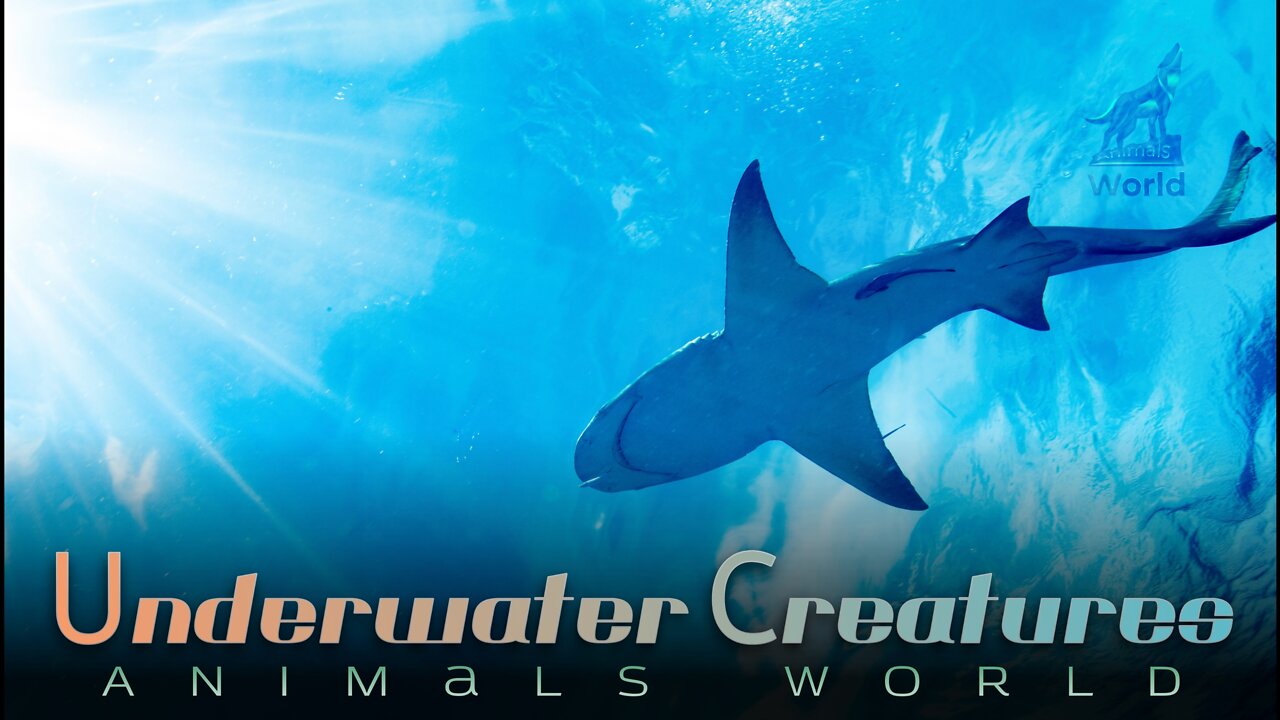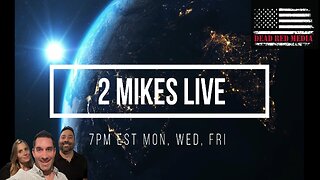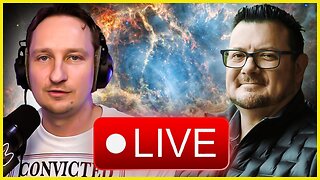Premium Only Content

Oceans underwater creatures shark fish, Animals world colourful sea life 2022
Animals World It is a place for everyone who loves animals and is interested in nature
our goal is to make our followers feel relax and have fun while watching animals
ANIMALS WORLD- WILDLIFE- animal planet-animal kingdom video movie, species, Snake-Full
Animals (also called Metazoa) are multicellular, eukaryotic organisms in the biological kingdom Animalia. With few exceptions, animals consume organic material, breathe oxygen, are able to move, can reproduce sexually, and go through an ontogenetic stage in which their body consists of a hollow sphere of cells, the blastula, during embryonic development. Over 1.5 million living animal species have been described—of which around 1 million are insects—but it has been estimated there are over 7 million animal species in total. Animals range in length from 8.5 micrometres (0.00033 in) to 33.6 metres (110 ft). They have complex interactions with each other and their environments, forming intricate food webs. The scientific study of animals is known as zoology.
Most living animal species are in Bilateria, a clade whose members have a bilaterally symmetric body plan. The Bilateria include the protostomes, containing invertebrates such as nematodes, arthropods, and molluscs, and the deuterostomes, containing the echinoderms and the chordates, the latter including the vertebrates. Life forms interpreted as early animals were present in the Ediacaran biota of the late Precambrian. Many modern animal phyla became clearly established in the fossil record as marine species during the Cambrian explosion, which began around 539 million years ago. 6,331 groups of genes common to all living animals have been identified; these may have arisen from a single common ancestor that lived 650 million years ago.
Historically, Aristotle divided animals into those with blood and those without. Carl Linnaeus created the first hierarchical biological classification for animals in 1758 with his Systema Naturae, which Jean-Baptiste Lamarck expanded into 14 phyla by 1809. In 1874, Ernst Haeckel divided the animal kingdom into the multicellular Metazoa (now synonymous for Animalia) and the Protozoa, single-celled organisms no longer considered animals. In modern times, the biological classification of animals relies on advanced techniques, such as molecular phylogenetics, which are effective at demonstrating the evolutionary relationships between taxa.
Humans make use of many animal species, such as for food (including meat, milk, and eggs), for materials (such as leather and wool), as pets, and as working animals including for transport. Dogs have been used in hunting, as have birds of prey, while many terrestrial and aquatic animals were hunted for sports.
The word animal comes from the Latin animalis, meaning 'having breath', 'having soul' or 'living being'.[1] The biological definition includes all members of the kingdom Animalia.
In colloquial usage, the term animal is often used to refer only to nonhuman animals.
Animals have several characteristics that set them apart from other living things. Animals are eukaryotic and multicellular.
Unlike plants and algae, which produce their own nutrients,[9] animals are heterotrophic,[8][10] feeding on organic material and digesting it internally. With very few exceptions, (example; Henneguya zschokkei[) animals respire aerobically. All animals are motile[14] (able to spontaneously move their bodies) during at least part of their life cycle, but some animals, such as sponges, corals, mussels, and barnacles, later become sessile. The blastula is a stage in embryonic development that is unique to animals, (though it has been lost in some) allowing cells to be differentiated into specialised tissues and organs.
Animals have several characteristics that set them apart from other living things. Animals are eukaryotic and multicellular.[7][8] Unlike plants and algae, which produce their own nutrients,[9] animals are heterotrophic,[8][10] feeding on organic material and digesting it internally.[11] With very few exceptions, (example; Henneguya zschokkei[) animals respire aerobically.[13] All animals are motile(able to spontaneously move their bodies) during at least part of their life cycle, but some animals, such as sponges, corals, mussels, and barnacles, later become sessile. The blastula is a stage in embryonic development that is unique to animals,[15] (though it has been lost in some) allowing cells to be differentiated into specialised tissues and organs.
Animals are categorised into ecological groups depending on how they obtain or consume organic material, including carnivores, herbivores, omnivores, detritivores,[35] and parasites.[36] Interactions between animals form complex food webs. In carnivorous or omnivorous species, predation is a consumer–resource interaction where a predator feeds on another organism (called its prey).[37] Selective pressures imposed on one another lead to an evolutionary arms race between predator and
-
 1:49:14
1:49:14
2 MIKES LIVE
11 hours ago2 MIKES LIVE #160 We're Back! Deep Dive Monday!
27.1K3 -
 54:28
54:28
LFA TV
1 day agoTrump’s Triumphant Year | Trumpet Daily 12.30.24 7PM EST
32.6K10 -
 2:28:37
2:28:37
Quite Frankly
10 hours ago"2024 Review, Homunculus Flu, Old/New Year Predictions" 12/30/24
59.3K8 -
 LIVE
LIVE
RonjnJeremy
12 hours ago $8.00 earnedClassic Wow 20th Anniversary edition HC SF, Rogue..PT8 lvl 46+ Just need to stay alive...
194 watching -
 1:50:28
1:50:28
Jesús Enrique Rosas
9 hours agoEp. 51: Gates wants CENSORSHIP, Colbert MESSES UP, AOC meltdown, Hanks LEAVING and MOAR!
107K57 -
 1:45:47
1:45:47
The Quartering
11 hours agoHuge Censorship Law To Pass, Trump Endorses Johnson, TikTok is Saved? & Today's News!
134K83 -
 55:59
55:59
The Amber May Show
10 hours ago $0.86 earnedCommon Behaviors That May Indicate You Are In An Abusive Relationship| Grace Bishara
24.7K1 -
 1:54:42
1:54:42
MTNTOUGH Fitness Lab
6 hours agoThe MTNTOUGH 8 Week LIVE READY Challenge w/ Kyle Kamp | MTNPOD #97
18K -
 2:25:15
2:25:15
WeAreChange
5 hours agoTrump Make CRYPTIC Post! Bill Gates Requested Meeting With Elon Musk At Mar-a-Lago??
30.8K19 -
 53:39
53:39
PMG
3 days ago $0.96 earned"Allegations Against Diddy & Usher, $150K Bounty on Trump, RINO Speaker Caves w/Steve Baker"
24.8K2